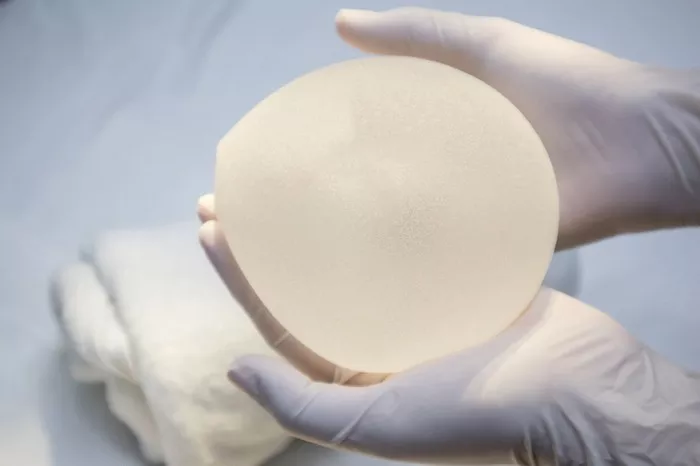Breast augmentation surgery is a popular procedure that can enhance a person’s confidence and self-esteem by improving the size and shape of their breasts. Like any surgical procedure, breast augmentation can lead to post-operative swelling, which is a common part of the healing process. While swelling is a natural response to surgery, it can be uncomfortable. Many patients wonder if there are foods that can help reduce swelling and promote a faster recovery. In this comprehensive guide, we will explore the role of nutrition in post-breast augmentation recovery and discuss specific foods that can aid in reducing swelling.
Understanding Post-Operative Swelling
Before delving into the foods that can help reduce swelling, it’s important to understand why swelling occurs after breast augmentation surgery:
Inflammation Response: Surgery, including breast augmentation, triggers an inflammatory response in the body. This is a natural and necessary process that helps the body heal and repair damaged tissues.
Blood Flow and Fluid Accumulation: During surgery, blood vessels are cut, leading to increased blood flow to the surgical site. This, in turn, can cause fluid to accumulate in the surrounding tissues, resulting in swelling.
Lymphatic System: Swelling can also occur because the lymphatic system, responsible for draining excess fluid from tissues, may temporarily become less efficient due to surgical trauma.
While post-operative swelling is a normal part of the healing process, there are dietary choices that can help manage it and promote a smoother recovery.
Foods That Can Reduce Swelling
Anti-Inflammatory Foods:
Consuming foods with natural anti-inflammatory properties can help reduce swelling after breast augmentation surgery. Incorporate the following foods into your diet:
Fatty Fish: Salmon, mackerel, and sardines are rich in omega-3 fatty acids, which have anti-inflammatory properties.
Turmeric: This spice contains curcumin, a potent anti-inflammatory compound. Consider adding turmeric to your meals or drinking turmeric tea.
Berries: Blueberries, strawberries, and cherries are high in antioxidants that can combat inflammation.
Leafy Greens: Kale, spinach, and Swiss chard are packed with vitamins and minerals that support the body’s healing process.
Lean Proteins:
Protein is essential for tissue repair and recovery. Opt for lean protein sources such as:
Chicken Breast: Skinless, boneless chicken breast is a lean protein that provides essential amino acids for healing.
Lean Beef: Lean cuts of beef, such as sirloin or tenderloin, are rich in protein and iron.
Plant-Based Proteins: If you prefer a plant-based diet, consider tofu, tempeh, and legumes like lentils and chickpeas.
High-Fiber Foods:
A diet rich in fiber can help regulate bowel movements, preventing constipation, which can contribute to discomfort and swelling. Include:
Whole Grains: Foods like brown rice, quinoa, and whole wheat bread are excellent sources of fiber.
Fruits and Vegetables: These foods are naturally high in fiber and provide vitamins and minerals necessary for healing.
Hydration:
Staying well-hydrated is crucial for flushing excess fluids from the body. Aim to drink plenty of water throughout the day to support the lymphatic system’s function.
Herbal Teas:
Certain herbal teas, such as ginger and peppermint, can have soothing and anti-inflammatory effects on the digestive system. They can help reduce bloating and discomfort.
Pineapple:
Pineapple contains an enzyme called bromelain, which has anti-inflammatory properties. Fresh pineapple or bromelain supplements may help reduce swelling.
Probiotic-Rich Foods:
Probiotics, found in foods like yogurt and kefir, can promote a healthy gut and digestion, which indirectly contributes to reduced swelling by preventing bloating and discomfort.
Vitamin C-Rich Foods:
Foods high in vitamin C, like oranges, strawberries, and kiwi, can aid in collagen production, which is important for tissue repair.
Foods to Avoid:
While incorporating the above foods into your diet can help reduce swelling, it’s also important to avoid foods that can exacerbate inflammation and discomfort. Limit your intake of:
Sodium: High-sodium foods, such as processed snacks and fast food, can lead to water retention and increased swelling.
Processed Sugar: Sugary foods and drinks can contribute to inflammation and should be consumed in moderation.
Caffeine and Alcohol: These substances can dehydrate the body, potentially worsening swelling.
Conclusion
A well-balanced diet that includes anti-inflammatory foods, lean proteins, high-fiber options, and plenty of hydration can play a significant role in reducing swelling and promoting a smoother recovery after breast augmentation surgery. It’s essential to consult with your surgeon or a registered dietitian for personalized dietary recommendations tailored to your specific needs and medical history. By prioritizing nutrition and making mindful food choices, you can help support your body’s healing process and achieve the best possible results from your breast augmentation surgery.


